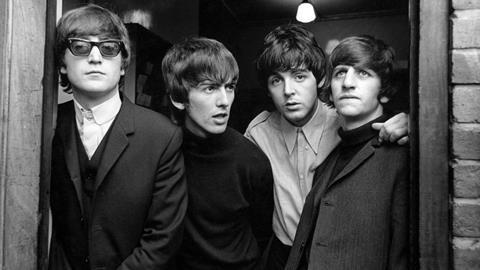It has long been said that ‘where there’s a hit, there’s a writ’ and so the decision of the surviving Beatles to release a new song using artificial intelligence should interest many IP lawyers.
'Now and Then', which is described as the last Beatles song, is sourced from a John Lennon demo, using technology to extricate and isolate his voice.
Lennon had been working on songs before his death and his wife, Yoko Ono, gave a cassette of the unfinished tracks to George Harrison. The new single is the third song on the cassette.
Although Sir Paul McCartney has said it was 'magical' to feel as though he was reuniting with his fellow Beatles, it remains to be seen whether the new collaboration could result in a new court showdown for the Liverpool band so famous for its history of lawsuits.
What Mr Justice Foxton called ‘the golden age of Beatles litigation' lasted from 1970 - the year Paul McCartney sued Lennon, Harrison, Richard Starkey and Apple Corps - to 2006 and Apple v Apple, where Steve Jobs’ technology company sued The Beatles’ recording company.
Two big cases involved copyright. One where Harrison and his publishing company were sued by Bright Tunes Music, the record label which owned The Chiffons’ 1963 hit, 'He’s So Fine'. Bright Tunes alleged similarities between 'He’s So Fine' and 'My Sweet Lord', the most successful single from George Harrison’s triple album All Things Must Pass.
Meanwhile Northern Songs was sued over the resemblance between The Beatles' 'Come Together' and Chuck Berry’s 'You Can’t Catch Me'. There was an intentional homage in the opening, but further resemblances throughout. The case settled.
For the latest track, filmmaker Peter Jackson, who directed the 2021 documentary series 'The Beatles: Get Back', has described how his team managed to isolate instruments and vocals from recordings using AI, including the original tape of 'Now and Then' which Lennon recorded as a home demo in the late 1970s.
‘That ultimately led us to develop a technology which allows us to take any soundtrack and split all the different components into separate tracks based on machine learning’, Jackson said in a promo video. But use of AI to generate music can present copyright issues.
Janice Denoncourt, associate professor of Law at Nottingham Law School said: 'As artificial intelligence (AI) tools evolve to generate music, these systems can produce copycat songs. They often use recordings of artists’ voices as training data (whether they are alive or deceased) without permission. Creators in the commercial music industry need a better understanding of the relationship between IP and AI. They need to appreciate what amounts to unlawful use of a copyright musical recording or database of recordings.
‘Currently, there is only one relevant exception to copyright infringement known as the text and data mining exception (TDM) - this does not apply to databases. The TDM exception, however, only applies to non-commercial use of the training data.
‘In most cases, a licence granting permission to use the copyright on certain terms and conditions is necessary. AI creators may need to pay the copyright holder a fee for the privilege. Always seek independent legal advice.’
'Now and Then' was released at 2pm on 2 November as a double A-side with the band’s 1962 'Love Me Do'.
This article is now closed for comment.




























12 Readers' comments